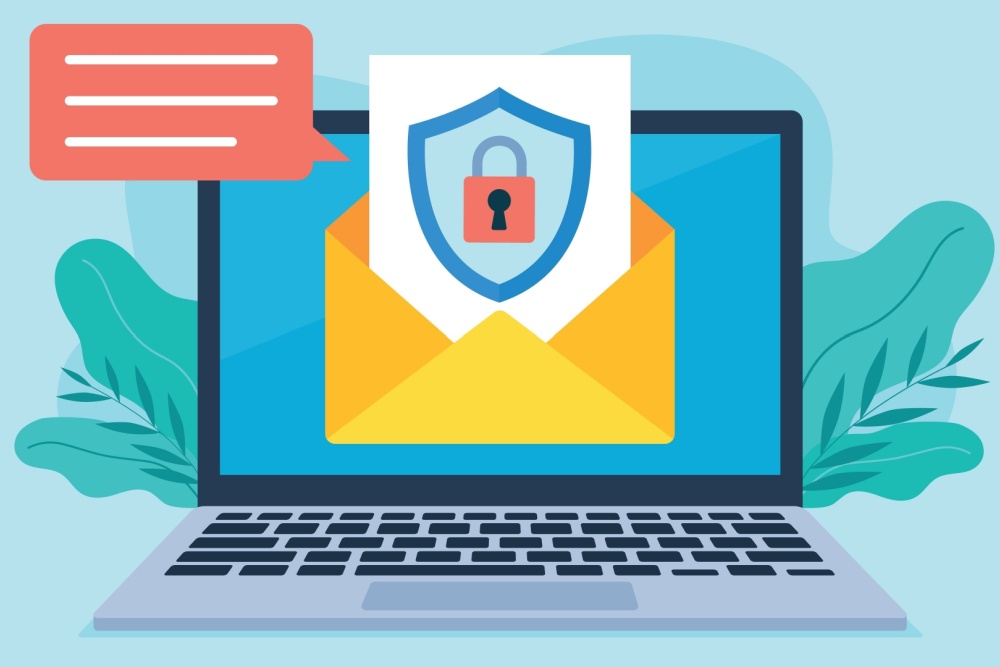When I first started using computers, security wasn’t much of a concern. We were all part of one big, happy family. Then came viruses, worms, Trojans, spyware, adware, ransomware, logic bombs, and denial-of-service attacks. Not to mention the crushing impact of massive amounts of spam. These days an average of 10-12 percent of an IT budget is spent on cybersecurity.
At CGNET, we, of course, have antivirus software installed on all our computers, along with cloud-based solutions, firewalls, and the like. Who would have thought that a small, cheap service like INKY could make a big difference? Initially, I thought it was a silly nuisance, but our IT team insisted. Then I started to notice things like “JavaScript removed from messages”. That got my attention!
The color-coded banners—gray, yellow, and red—became an appreciated feature:
- Gray: INKY didn’t detect anything suspicious in the message.
- Yellow: INKY found something unusual, but not necessarily dangerous.
- Red: INKY suspects the message is harmful, potentially phishing or containing other threats.
These banners are especially helpful on mobile devices like an iPhone.
What is INKY?
INKY is a security tool designed to protect email accounts from phishing and other online threats, acting as a bodyguard for the inbox. It scans emails for suspicious content and blocks harmful material before it reaches the user. Additionally, it warns when something appears even slightly off, allowing the recipient to make the final decision. Whether for an individual or a company, INKY works diligently to safeguard online communications.
How INKY Protects Emails
Here are several ways INKY helps avoid cyber threats:
- Spotting Phishing Scams: Phishing involves hackers sending fraudulent emails to trick people into revealing sensitive information such as passwords or credit card numbers. INKY’s smart technology detects suspicious emails, catching even well-disguised phishing attempts before they cause harm.
- Catching Imposter Emails: Hackers often use email addresses that mimic trusted contacts. INKY helps differentiate these imposter emails, providing a second pair of eyes to verify the sender’s identity.
- Safe Link Checking: Some emails contain links to malicious websites. INKY verifies these links in real-time, ensuring their safety before they are clicked. Even if a link becomes risky after the email is received, it alerts the recipient to prevent access to dangerous sites.
- Stopping Fake Brand Emails: Hackers often disguise themselves as trusted companies, such as banks. INKY analyzes logos, colors, and other details to detect fake branding, preventing “deepfake” emails from fooling the recipient.
Educating Users about Email Threats
One of my favorite features is INKY’s educating recipients about email threats. When something suspicious is flagged, it explains the issue in clear, simple terms. Over time, this helps staff recognize red flags, making it an effective cybersecurity training tool.
Saving Money for the Organization
A single phishing attack can lead to lost data, legal issues, and damage to the company’s reputation. INKY helps prevent these problems by blocking harmful emails before they reach employees. It also tracks potential threats, providing IT teams with valuable insight into emerging risks.
Wrapping Up
In a world where cyber threats are constantly evolving, online safety tools must evolve as well. INKY is an easy-to-use email security solution that protects against phishing, fake emails, and other online dangers.
Try INKY for Free
CGNET can set you up with a free trial. Just reach out and let us know you’re interested!





0 Comments